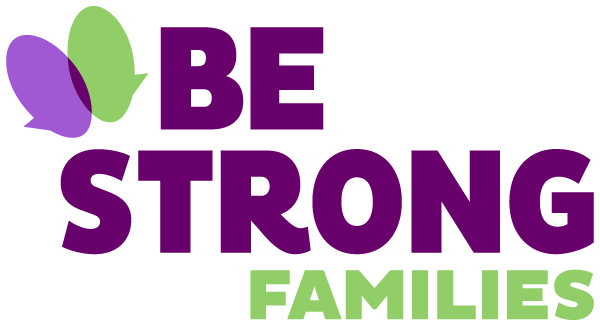Parenting Advice Remix: Balancing the Experts with Experience
The author’s father and brother, circa 1975
The headline that showed up in my Facebook feed was so enticing: “Parents of the Most Successful Kids Do These 5 Things Differently, According to Research.”
Lured by the clickbait, I opened the article in Inc. Magazine and learned that parents of successful kids do the following:
They use an authoritative parenting style
They travel with children
They play card games with their children
They exercise regularly
They eat meals with their kids
I was relieved that my husband and I have been doing right by our son and grateful that we have the resources for regular family vacations. And then I got annoyed! This list includes some things that are out of reach for so many families, especially those with low-wage jobs with unpredictable schedules, who live in unsafe neighborhoods, or experience other challenges to healthy families.
The keyword in the headline was “research” which gives an aura of authority to the list of “Shoulds” laid out in the article. The article interpreted some findings of a handful of unrelated studies to create a list that assumed a certain kind of family: two-parent, with enough disposable income to take vacations and flexibility in their work and family schedules. This profile is not surprising given that the average annual household income of Inc. Magazine readers is about $327,000 compared to the US average household income of $59,000 in 2015, and that their readers are entrepreneurs and executives.
I then wondered, how could lower-income parents—aka real people—incorporate some of this advice into their family lives. How did my parents incorporate some of these habits in our lives, given their limited resources?
The recommendation about the benefits of travel for kids is based on one author’s interpretation of psychological research that documents how exploring new environments stimulates the brain’s Seeking System. Travelling to faraway places on vacation was not possible for us, but we took road trips to visit extended family in other parts of California and nearby states. My dad also exposed us to diverse people, cultures, and environments by taking us along to other neighborhoods where his work as a handyman took him. In Los Angeles, this was a way to explore the world together without leaving our own city.
Many of the benefits for kids of eating meals together are related to communication and healthy habits around food. Regular family meals were not always possible when either of my parents worked retail jobs, or when we as teenagers got our own retail jobs. Communication had to happen other times: we had family movie nights on Fridays when my dad wasn’t working. Then there were the times that my dad made us help him with home repair projects, which we hated. At the time, I didn’t realize that having uninterrupted time focused on a manual task gave us the space to check-in with each other and to have far-ranging conversations. Years later, when my dad helped my newlywed husband and me refurbish our 1909 home, I came to recognize this special time as a wonderful gift.
I learned about healthy food and eating habits by grocery shopping and cooking and serving meals with my mom. She passed her knowledge and values to me by including me (by necessity) in these everyday tasks.
Exercise was part of both of my parents’ lives, when the availability of facilities, time, or transportation wasn’t a challenge. When she had reliable transportation, my mom took yoga and racquetball lessons at a local community college (there were no gyms or yoga studios in our neighborhood at that time). When we lived in an apartment building with a pool, swimming was part of my dad’s routine, when he was not tired out from the physical labor from his job.
In our work with parents, Be Strong Families is very intentional about using research to inform our approach and shape the experience of participants, without lecturing, talking down or creating “Shoulds” that may or may not be relevant to participants’ lives and circumstances. Through our Parent Cafés, Be Strong Families introduces the Strengthening Families Protective Factors framework in a way that invites participants to make their own connections to the factors that research shows make a family strong. The strength and beauty of this approach is that it allows everyone to learn and grow without being judged and without biases about what family should look like and what income or education level is needed to keep children safe and raise a strong family.
Article by: Alexis Moreno
The author and her family, circa 1978


